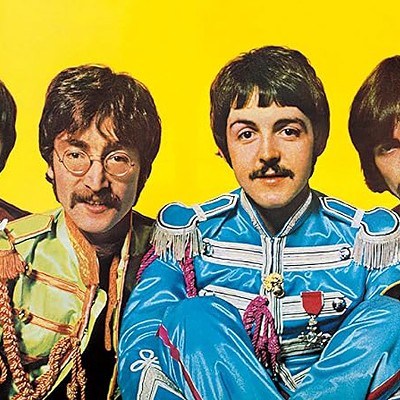Alex Winter (Bill & Ted's Excellent Adventure, The Idiot Box) has spent the last decade trying to make a movie about Napster, the revolutionary peer-to-peer filesharing site that changed the music industry forever. Winter met Napster founder Shawn Fanning in 2002 and was instantly energized by the possibility of telling the company's story.
Originally, the film was supposed to be a fictional narrative along the lines of The Social Network, but now Winter has almost completed Downloaded as a documentary, with a screening due at SXSW.
"I felt that what Napster was doing was the biggest youth revolution since the '60s," says Winter by phone. "I couldn't understand why that wasn't obvious to everyone else. This was the beginning of something very, very important."
Napster allowed people to build huge libraries of songs for free. To be more accurate, you uploaded your copy of Kill 'Em All on your computer, and anyone who was looking for a song off of the album could then download it to their computer.
Artists like Metallica and Dr. Dre filed lawsuits against Napster in 2002, calling the program piracy, and other titans of the music industry joined in. The next year the service was shut down, and its assets were sold off in 2002.
However, the door had been opened, and the amount of music bought, shared and/or stolen on the Internet continues to climb each year. It has fundamentally changed the way we think about buying music, and yet to blame Napster isn't really fair.
Articles talking about file-sharing and digital music buying appeared in tech publications decades before Napster was founded, according to Winter. The change was headed to the music industry like a tsunami, with or without Napster.
It's a pretty inarguable fact that music sales are down, and that piracy plays a big factor. However, Winter offers a much broader look at the music industry's woes. He freely admits he's no expert, just a guys who has talked to a lot of people and closely watched many things happen, but his logic is rock-solid.
"The music industry from two decades was a bubble, just like the housing bubble," he says. "It was all related to the death of the single and the birth of people buying whole albums for a single song. Twenty-five million copies of a Britney Spears album was not in any way a sustainable market. It burst. It's just that simple."
Winter has a point. The biggest-selling single of all time is Bing Crosby's "White Christmas." Crosby released his tune at a time when artists had to keep putting out solid singles that did well in order to stay on top. There was no coasting a record on one song.
But eventually record executives realized that if you did away with the singles system, you could get people to pay $15 for a single song. Oh, they still released singles, but nowhere near the numbers of yesteryear. Granted, the list of albums worth album price for their content is huge, but the number of albums that weren't worth album price is exponentially larger.






